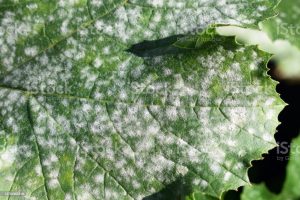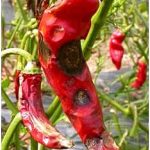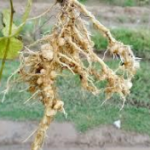INTRODUCTION:
Powdery mildew is a fungal disease that affects a wide range of plants. Powdery mildew diseases are caused by many different species of ascomycete fungi in the order Erysiphales.
During the growing season, hyphae are produced on both upper and lower leaf surfaces, although some species are restricted to one leaf surface only.
Asexual spores are also produced on plant surfaces during the growing season. They develop either singly or in chains on specialized hyphae called conidiophores.
SYMPTOMS:

Powdery mildews are easily recognized by the white, powdery growth of the fungus on infected portions of the plant host.
White powdery coating appears mostly on the lower surface and occasionally on upper surface
Correspondingly on the upper surface yellow patches are seen
Severe infection results in the drying and shedding of affected leaves
Powdery growth can also be seen on branches and young fruits
Diseased fruits do not grow further and may drop down prematurely.
HOST: Sunflower, Wheat, Barley, Grape, Onion, Apple, Pear, Gourds, Mellon, Mango, Pea, Orange, Grape etc.
PRIMARY: Dormant mycelium in the infected crop debris
SECONDARY: Wind dispersed conidia
FAVOURABLE CONDITIONS:
Powdery mildew tends to be more problematic in mid to late summer when day-night temperatures favor high relative humidity (RH), although it can develop anytime during the growing season.
Powdery mildew infections occur with temperatures between 16 to 30C and develops fastest between 21 to 27C.
CONTROLS:
Planting resistant vegetable varieties when available, or avoiding the most susceptible varieties, planting in the full sun, and following good cultural practices.
For many vegetable crops, sulfur, copper-based products, chlorothalonil, horticultural oil, potassium and bicarbonate can be used for powdery mildew control.





